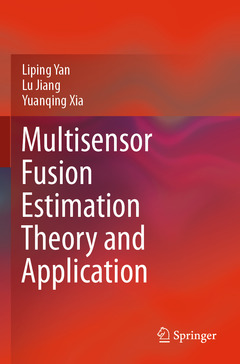Description
Multisensor Fusion Estimation Theory and Application, 1st ed. 2021
Language: English
Subjects for Multisensor Fusion Estimation Theory and Application:
Publication date: 11-2021
227 p. · 15.5x23.5 cm · Paperback
Publication date: 11-2020
227 p. · 15.5x23.5 cm · Hardback
Description
/li>Contents
/li>Biography
/li>Comment
/li>
This book focuses on the basic theory and methods of multisensor data fusion state estimation and its application. It consists of four parts with 12 chapters. In Part I, the basic framework and methods of multisensor optimal estimation and the basic concepts of Kalman filtering are briefly and systematically introduced. In Part II, the data fusion state estimation algorithms under networked environment are introduced. Part III consists of three chapters, in which the fusion estimation algorithms under event-triggered mechanisms are introduced. Part IV consists of two chapters, in which fusion estimation for systems with non-Gaussian but heavy-tailed noises are introduced. The book is primarily intended for researchers and engineers in the field of data fusion and state estimation. It also benefits for both graduate and undergraduate students who are interested in target tracking, navigation, networked control, etc.
Lu Jiang was born in Shandong Province, China, in 1990. She received her B.S. degree in Automation from Qingdao University, Qingdao city, Shandong Province, P. R. China, in 2013, and received her Ph.D. degree in Control Science and Engineering from Beijing Institute of Technology, Beijing, China, in 2019. She is currently an Assistant Professor in Beijing Technology and Business University. Her research interests include multisensor data fusion, optimal state estimation, etc.
Yuanqing Xia was born in Anhui Province, China, in 1971, and graduated from the Department of Mathematics, Chuzhou University, Chuzhou, China, in 1991. He received his M.S. degree in Fundamental Mathematics from Anhui University, China, in 1998, and his Ph.D. degree in Control Theory and Control Engineering fro



